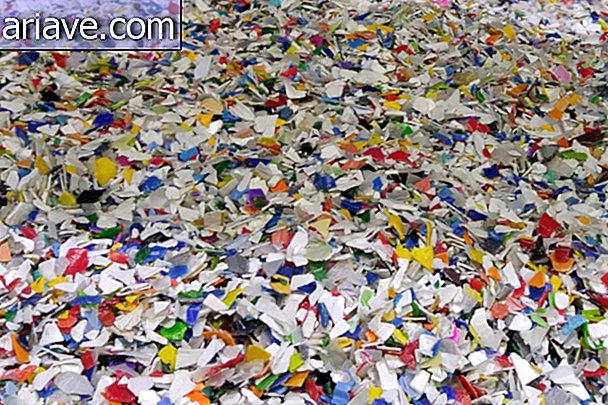How does our stomach not digest itself?
As you know, the stomach is part of the digestive system and is one of the organs involved in digesting the food we eat. For it is in its walls that are the gastric glands, the structures responsible for producing and releasing gastric juice, a clear liquid that helps to "decompose" what we eat.
This substance is made up mainly of water, enzymes, inorganic salts - a small amount of lactic acid - and a nice dose of hydrochloric acid, a highly corrosive solution that helps turn the food cake into a pasty mass called a chymus. Later this mass goes to the small intestine, where the digestion process continues and nutrients are absorbed and released into the bloodstream.
Protection barrier
But back in the stomach, if it produces and releases such a powerful acid - even able to dissolve some metals! - How does the body not digest itself ? The answer lies in the fact that the human body is a simply amazing machine. The inner walls of the stomach are lined with epithelial cells that secrete a layer of sticky, sticky substance that prevents gastric juice from corroding the organ.

This layer - also called mucus - not only acts as a physical barrier between the gastric juice and the stomach walls, but also acts as an agent that counteracts the action of hydrochloric acid. But unfortunately, this layer of coating is not completely foolproof. You have heard of ulcers, right?
They arise when the mucus barrier is broken and gastric juice begins to erode the stomach walls. In other words, ulcers are the result of the stomach digesting itself! Major symptoms include constant abdominal pain, nausea, burning, loss of appetite and eructation, and if left untreated, these lesions may continue to develop until they cause gastric obstruction, gastrointestinal perforation, bleeding, and even death.
Several factors can lead to ulcers, but among the most common are stress, smoking, excessive alcohol consumption, the use of non-steroidal anti-inflammatory drugs, and Helicobacter pylori infection .
Treatment, of course, involves “nipping it in the bud, ” that is, quitting smoking, drinking in moderation, stopping the use of certain medications, and trying to lead a more peaceful lifestyle. In the case of H. pylori, therapy is performed by a combination of drugs and antibiotics.











